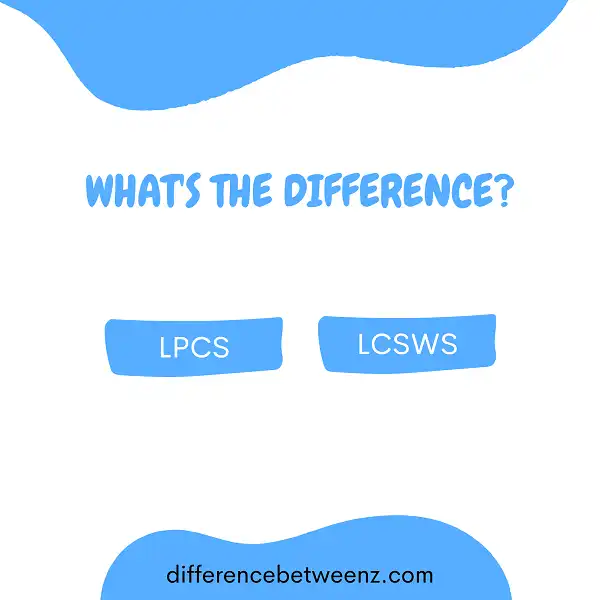Are you considering a career as a therapist? It’s important to know the difference between LPCs and LCSWs. Licensed professional counselors (LPCs) have a master’s degree in counseling, while licensed clinical social workers (LCSWs) have a master’s degree in social work. LCSWs are also licensed to provide psychotherapy. So which one is right for you? Here’s a breakdown of the differences between LPCs and LCSWs.
What are LPCs?
LPCs are Licensed Professional Counselors. LPCs work with individuals, families, and groups to promote mental health and well-being. LPCs use a variety of methods to help people improve their mental health, including psychotherapy, counseling, and psychoeducation. LPCs are trained to work with people of all ages, from infants to the elderly. LPCs work in a variety of settings, such as private practices, hospitals, clinics, schools, and community mental health centers. LPCs generally have a master’s degree in counseling or a related field. LPCs must be licensed by the state in which they practice.
What are LCSWs?
LCSWs are Licensed Clinical Social Workers. LCSWs typically have a master’s degree in social work (MSW) and have completed two years of post-graduate clinical training. LCSWs are qualified to diagnose and treat mental, emotional, and behavioral disorders. LCSWs also provide psychotherapy and counseling services to individuals, couples, families, and groups. LCSWs work in a variety of settings, including private practices, hospitals, clinics, schools, and social service agencies. LCSWs often collaborate with other mental health professionals, such as psychiatrists, psychologists, and counselors.
Difference between LPCs and LCSWs
LPCs and LCSWs are both mental health professionals who provide counseling services to individuals, families, and groups. LPCs, or Licensed Professional Counselors, must have a master’s degree in counseling from an accredited institution.
- In addition, LPCs must complete a supervised clinical internship and pass a state-recognized exam. LCSWs, or Licensed Clinical Social Workers, must also have a master’s degree in social work from an accredited institution.
- In addition, LCSWs must complete 2 years of post-graduate clinical supervision and pass a state-recognized exam. While LPCs and LCSWs share many similarities, there are some key differences between the two professions.
- LPCs tend to focus on providing psychological counseling services, while LCSWs focus on providing social work services. In addition, LPCs are licensed to provide counseling services in all 50 states, while LCSWs are only licensed to provide social work services in 41 states.
As a result, LPCs tend to have more opportunities for professional mobility than LCSWs. Finally, LPCs are required to complete continuing education courses every 2 years in order to maintain their license, while LCSWs are only required to complete continuing education courses every 3 years.
Conclusion
LCSWs are licensed to provide psychotherapy, while LPCs are not. However, LPCs often have more training in counseling and therapy than LCSWs. If you are looking for someone to provide counseling or therapy services, you should ask about their license and training.


